The 3rd Global Sufficiency Summit has come and gone (April 10th and 11th). It is a monumental feat to bring together people from so many different areas of expertise, ways of thinking, and paths. We gathered together inside of a shared vision of the world, and in a shared yearning for ourselves – and our children, to live and develop from sufficiency.
It just so happened that the Monday evening after our two-day Summit, Harvard Divinity School hosted a panel to discuss “What is Enough?” with Harvard Business School. The HBS professor, Howard Stevenson, presented a Powerpoint exploring satisfaction and success, the HDS professor Dan McKanan read a paper linking monotheism to capitalism, and the entrepreneur of the hour was Candice Carpenter, the creator of iVillage, a landmark social media site that brought women together on the web in the early Internet days. Candice ended up at divinity school herself and could not be more down to earth – given her company went public and made her a millionaire – as she spoke from her heart and experience about the possibility of a shift from acquisitive capitalism to generative capitalism. The conversation was narrative, conceptual and even technical at times, but it is important to note that the panelists all spoke of love and energy flow.
Seven Stones showed up to this conversation, post-Summit, pretty wiped out, but too curious to miss how other groups of people are talking about this sprouting, but ancient subject, at such an academic powerhouse no less. The connections to the Summit were strong. Bill Reed, a local architect wholly devoted to truly sustainable, or rather re-generative, building and development, gave us all hope when he shared in his break-out session that almost any area, once truly seen in all its wholeness – its history, watershed, nutrient flow, migration patterns, etc. – could re-generate (not restore) in 18 months. Candice’s generative capitalism did not seem like a wishful apparition, but actually possible with some strategic leveraging.
Lynne Twist’s story at the Summit about converting a Wealth Fund Manager at one of the big brokerage houses from a disdainful unbeliever in Climate Change to opening her heart to how she could make a difference, in an evening, also fortified a sense of hope and real possibility. Lynne described her methods: invite people who want to get to know each other since powerful people mixing is compelling. Add in a few who attended her “Awakening the Dreamer” symposium, where one hears the call of the Earth, and the conversion happens amongst the participants. By the way, this same symposium woke up Dan Wieden, the owner of the largest privately owned ad company, Wieden + Kennedy, that makes the most relevant ads on TV, the ones I laugh at (have you seen the latest Old Spice?). This awakening led to a partnership with Pachamama and 650 other organizations to create the largest ad campaign in the world to shift consciousness, called Four Years. Go.
There are many outcomes from this gathering, for each us. One I recognize deeply now is that when we set out to make a difference, a change, a transformation, we must have love in our heart. We must feel compassion for the person or thing we wish to be different. Bill Reed said that he has an easier time working with the business community during development projects than with the local environmental communities. He is speaking the language of the Earth, advocating for Her, but the environmentalists are weary and hardened from fighting, polarized and unwilling to listen, to collaborate. Whereas, the business folks will take value anywhere.
How wise is that? Seek the value, and then detaching from what we think is right (our righteousness) becomes easier. Candice and Howard talked some about allowing capital to consolidate in business and social entrepreneuring communities that are energized to create something. Capital has to pool in order to make things happen. Capital consolidation is not inherently bad (like what the Marxists might say). Balance is static. Bill Gates’ billions to all would be $10 to each person in the world. That’s a burger’n fries, but not the end of TB in Rio de Janeiro or thousands of girls in schools throughout Afghanistan.
The HDS panel emphasized Howard’s principal of juggling, something I find useful as a parent. He articulated the art of letting a ball go to catch another one to focus on, paying deep attention and growing it to its point of flourishing. Growing ourselves, growing our communities. These are some of the ideas and principals being explored inside of What is Enough? and I am so grateful to be part of the inquiry.



